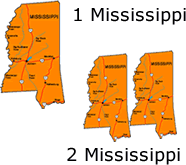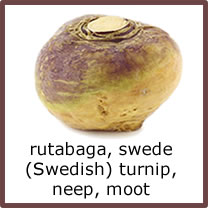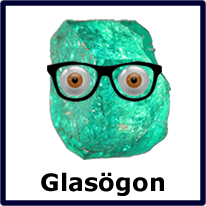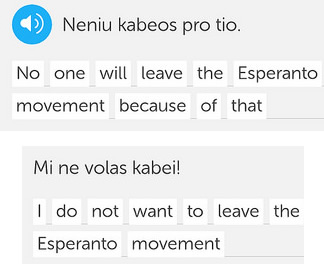
Here’s a recording in a mystery language.
Can you identify the language, and do you know where it’s spoken?

Here’s a recording in a mystery language.
Can you identify the language, and do you know where it’s spoken?

If you need or want to count in seconds, do you put a words between the numbers? For example 1 [word], 2 [word], 3 [word] etc.
I usually use Mississippi as the in-between word, but have tried others, such as elephant and hippopotamus. Elephant doesn’t really work as it doesn’t have enough syllables, but hippopotamus works well.
I remember seeing television programmes involving parachuting in which people count 1 thousand, 2 thousand, and so on before opening their parachute.
Another alternative is Piccadilly, according to this video:
There are various places named Piccadilly in England, including a street in central London, an area of Manchester, and a hamlet in Warwickshire, and also places in Australia and Canada.
What in-between word do you use (if any) in English or other languages?
What do the words furtive and ferret have in common?
They come from the same root – the Latin word fūr (thief).
Furtive comes from the French furtif (stealthy), from the Latin fūrtīvus (stolen), from fūrtum (theft), from fūr (thief) [source].
Ferret (Mustela putorius furo) comes from the Middle English furet / ferret (ferret), from the Anglo-Norman firet / furet (ferret), a diminutive of the Old French fuiron (weasel, ferret), from the Late Latin furo (cat; robber), a diminutive of the Latin fūr (thief) [source].
Alternatively ferret comes from the Latin furittus (little thief) [source].
The Latin name of the ferret, mustela putorius furo, means something like “stinking robber weasel” [source].
Fūr comes from the Proto-Italic *fōr (thief), from the Proto-Indo-European *bʰṓr (thief), from *bʰer- (to carry) [source], which also the root of words for child in Germanic languages, such as bairn in Scots, barn in Danish, Faroese, Icelandic, Norwegian and Swedish, and barn/bern in West Frisian [source].

Here’s a recording in a mystery language.
Can you identify the language, and do you know where it’s spoken?

One of the words that came up in the French conversation group last night was rutabaga [ʁy.ta.ba.ɡa], a root vegetable that originated as a cross between the cabbage and the turnip, and that was possibly introduced from Sweden.
The word rutabaga was borrowed in 1799 from the Swedish word rotabagge, a dialect word from Västergötland in southern Sweden, from rot (root) and bagge (bag, short, stumpy object) [source].
This vegetable has a variety of names in different places:
What other names does this vegetable have?
Sources: Wikipedia, Am Faclair Beag, Gerlyver Kernewek, foclóir.ie, Online Manx Dictionary

Recently I learnt an interesting word in Swedish – glasögon, which means glasses or spectacles, and literally means “glass eyes”.
Glas means glass, and comes from the Proto-Germanic *glasą (glass), from the Proto-Indo-European *ǵʰel- (to shine, shimmer, glow) [source].
Ögon is the plural of öga (eye), and comes from the Old Swedish ø̄gha (eye), from Old Norse auga (eye), from Proto-Germanic *augô (eye), from Proto-Indo-European *h₃ekʷ- (eye; to see) [source].
The Swedish word glas reminds me of the Russian word for eye, глаз (glaz), which I remember by thinking of a glass eye. Глаз comes from the Old East Slavic глазъ (glazŭ – ball, eye), from the Proto-Slavic *glazъ (ball), from Proto-Indo-European *g(ʰ)el- (round, spherical, stone) [source].
The Russian word for glasses is очки (ochki), which comes from очи (ochi), the plural of око (oko), the old Russian word for eye, which comes from the same Proto-Indo-European root as öga and eye [source].
In Danish and Norwegian, the word for glasses is briller, which means ‘a person wearing glasses’ in Dutch, and to shine or sparkle in French [source]. The German word for glasses is simliar – Brille, and the Dutch is bril [source].
Briller, Brille and bril come from the Middle High German berillus (beryl), from the Latin beryllus (beryl), probably from the Ancient Greek βήρυλλος (bḗrullos – beryl), from Sanskrit वैडूर्य (vaidurya – a cat’s eye gem; a jewel), from Dravidian. Probably named after the city Velur (modern day Belur / ಬೇಲೂರು) in Karnataka in southern India. The first glasses, made in about 1300 in Italy, were made from beryl [source].
Beryl is a mineral which comes from three forms: morganite (orange), aquamarine (blue-green – pictured top right) and heliodor (green-yellow).
The French word for glass, lunettes, means “little moons” [source].
Are there interesting words for glasses, spectacles, specs, or eyes in other languages?

Here’s a recording in a mystery language.
Can you identify the language, and do you know where it’s spoken?
What do the words bulge, budge and budget have in common?
The answer is, they all come from the same root.
Bulge comes from the Old Northern French boulge (leather bag), from the Late Latin bulga (leather sack), from the Gaulish *bulga / *bulgos, from the Proto-Celtic *bolgos (sack, bag, stomach) [source], from the Proto-Indo-European *bʰelǵʰ- (to swell) [source].
Budge, in the sense of “a kind of fur prepared from lambskin dressed with the wool on, formerly used as an edging and ornament, especially on scholastic habits”, comes from the Middle English bouge (to swell out, to bilge) from the Late Latin bulga (leather sack) [source].
Budget comes from the Middle English bogett / bouget / bowgette (leather pouch), from the Old French bougette (purse for carrying coins), the diminutive of bouge (leather bag, wallet), from the Late Latin bulga (leather sack) [source].
The Proto-Celtic word *bolgos is also the root of bolg, which means belly, stomach, abdomen, buldge or hold in Irish; belly, stomach, abdomen, corporation, bilge or bowl in Manx; and blister, bilge, bulb or womb in Scottish Gaelic [source].
In the Brythonic languages *bolgos became bol (belly, paunch, abdomen, stomach, bowels; tripe; appetite, desire, gluttony, liking) in Welsh [source], bolgh (breach, gap, opening) in Cornish [source], and bolc’h in Breton [source].
Budge, in the sense of to move, comes from a different root: from the Middle French bougier, from Old French bougier, from the Vulgar Latin *bullicāre (to bubble; seethe; move; stir), from the Latin bullīre (to boil; seethe; roil) [source].

The word kabei [ka.ˈbe.i] appears in one of the Duolingo Esperanto lessons I did today in the sentences, “Mi ne volas kabei” and “Neniu kabeos pro tio”.
From the words available for the translation, I worked out what it meant, but it’s not obvious. In order to understand this word, you have to know something about the history of Esperanto.
Kabei means “to leave the Esperanto movement”, so the first example means “I don’t want to leave the Esperanto movement”, and the second means “Nobody will leave the Esperanto movement because of that”.
This word is based on the pseudonym, Kabe, which was used by Kazimierz Bein (1872-1959), a Polish ophthalmologist and prominent member of the Esperanto movement. He wrote prose in Esperanto, translated novels into the language, and produced one of the first Esperanto dictionaries. At least until 1911, when he left the movement, without saying why. In 1931 Bein said that he didn’t think Esperanto was a viable solution for an international language.
Not long after he left the Esperanto movement his pseudonym became a Esperanto word meaning “to fervently and successfully participate in Esperanto, then suddenly and silently drop out”.
Another word that’s very specific to Esperanto that came up in today’s lessons is krokodili (lit. “to crocodile”), which means “to speak among Esperantists in a language besides Esperanto, especially one’s native language or a language not spoken by everyone present” [source], for example “Ne krokodilu!” (Do not speak your native language when Esperanto is more appropriate!).
The origins of this word are uncertain. It may be related to crocodile having large jaws, and to the action of flapping one’s jaws carelessly. Maybe is was used to refer to noisy non-Esperantists who disturbed an Esperanto group in Paris in the 1930s. Or it may come from Andreo Cseh, an Esperanto teacher who’s students had to speak Esperanto when holding a wooden crocodile he always had with him [source].
The antonym of krokodili is malkrokodili, which means “to speak Esperanto among non-Esperanto speakers”.
You could use both words together perhaps: “Li ĉiam krokodilis, kaj pro tio li devis kabei.” (He always spoke his native language instead of Esperanto, and therefore he had to leave the Esperanto movement).
Yesterday I learnt some Scottish step dancing with Joy Dunlop in the morning, which was a lot of fun and quite tiring, then in the afternoon there were performances from Cornish and Breton groups.
I also went to a Cornish shanty session with the Aggie Boys Choir, Tir Ha Tavas and Matt Blewett, and a Cornish tunes session hosted by Richard Trethewey of The Grenaways and The Rowan Tree. I didn’t know any of the tunes, but did my best to pick up bits of them. I also recorded some, and may try to learn them and introduce them to sessions in North Wales.
I even heard a few conversations in Cornish between fluent speakers, understood quite a bit of them, and even took part in a few conversations in Cornish myself. At the concert in the evening, which featured groups from Brittany, Cornwall and Wales, the introductions to the groups were in Cornish and English, and I found that I could follow quite a lot of the Cornish.
This morning I had another explore of Newquay and went down to Towan Beach, which seems to be very popular with surfers. Later today there will be more workshops in dancing and singing, readings of poetry and stories in Cornish, and more performances and dances.